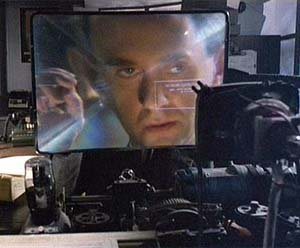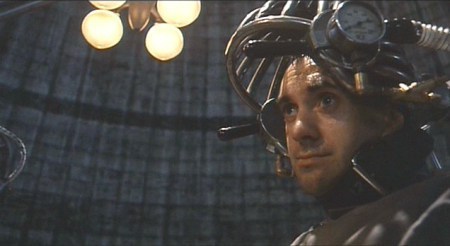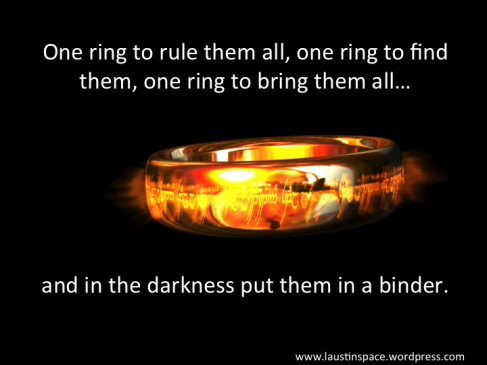Austin Aslan's Blog, page 9
September 10, 2013
Pippin Properties Interviewed by “Cynsations”
Please check out this lovely Cynsations interview with my agency, replete with a mention of ISLANDS! #lovethepippins
http://cynthialeitichsmith.blogspot.com/2013/09/agents-interview-holly-mcghee-elena.html


September 8, 2013
25 Steps to Being a Traditionally Published Author
25 Steps to Being a Traditionally Published Author
This blog entry over at terribleminds is hilarious and, I have to say, eerily-matched to my experience with getting published. It’s full of great advice for those looking to break in. Definitely read it!


January 25, 2013
My first press!
I’m very stoked to announce the first public announcement of my book deal! I can remember perusing the Rights Announcements of Publisher’s Weekly on many occasions over the years, day dreaming about what it would be like to see my own face on there. Now I know! What a treat. (The first of many, I hope.) By the way, kudos to my agent, Julie Just, for an absolutely fabulous book summary and for arranging the announcement in the first place. A screen grab of the announcement is below, or you can go straight to this permalink and then scroll down to the bottom to see it in context. Thanks, Publisher’s Weekly!


December 13, 2012
A Dream Come True…

Time to break out the 89 Perrier-Jouet Belle Epoque
After more than 8 years of wandering around in that vast, lonely wilderness that every aspiring writer knows all-too-well, I am thrilled to report that I’ve sold my novel, THE ISLANDS AT THE END OF THE EARTH, to Wendy Lamb of Random House, in a two-book deal.
I’m not even sure where to start, so I won’t. It’s time to celebrate. But I promise I’ll be back soon to share my thoughts and shed light on the process and to thank a ton of people who have made this milestone possible.


November 28, 2012
Countdown…
I’m reading The Hobbit right now…for the first time! Been saving it for a special occasion. Now that my book is officially being sent out by my agent, I need a distraction. There’s also some other reason why it’s time to read The Hobbit, but it’s not quite coming to mind… Anyway, I thought a shot of me and my wife on the set of Hobbiton would be a great way to launch my tumblr blog. Enjoy!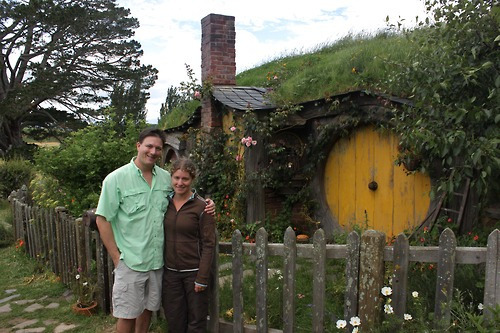
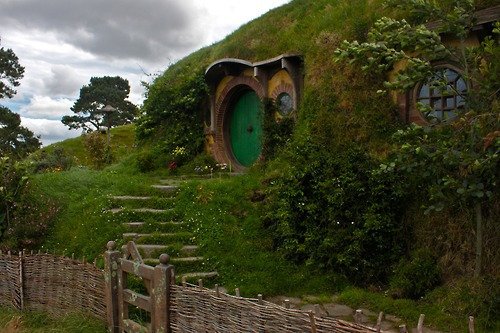


October 20, 2012
Why Brazil?
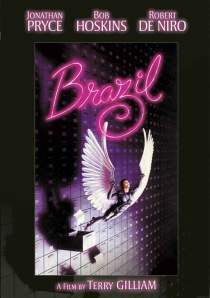 Winning out over the “Muppet Movie” by a razor-thin margin, Terry Gilliam’s “Brazil” is my all time favorite film, and not just because I receive vacant stares or looks of concern when I admit that. A cerebral tale, to put it mildly, and as chilling as it is comical, Brazil isn’t just an excuse to sit down with a bucket of popcorn. To hit the nail on the head in the simplest terms possible, it’s a house of mirrors, a carnival ride we unwittingly enter into for a joke but leave in a sort of shock, because we’ve just been shown ourselves through an unbecoming filter and we’re not sure we like what we’ve seen. This movie is not a journey into Gilliam’s dark but genius vision of an all too possible future, where terrorism is whittled down to poor sportsmanship, where “Consumers for Christ” picket around neon Christmas trees, and heroes literally disappear in a heap of paperwork. This movie’s eerie power arises from the realization that it is a reflection of our present, of the way the world has been working for quite some time now.
Winning out over the “Muppet Movie” by a razor-thin margin, Terry Gilliam’s “Brazil” is my all time favorite film, and not just because I receive vacant stares or looks of concern when I admit that. A cerebral tale, to put it mildly, and as chilling as it is comical, Brazil isn’t just an excuse to sit down with a bucket of popcorn. To hit the nail on the head in the simplest terms possible, it’s a house of mirrors, a carnival ride we unwittingly enter into for a joke but leave in a sort of shock, because we’ve just been shown ourselves through an unbecoming filter and we’re not sure we like what we’ve seen. This movie is not a journey into Gilliam’s dark but genius vision of an all too possible future, where terrorism is whittled down to poor sportsmanship, where “Consumers for Christ” picket around neon Christmas trees, and heroes literally disappear in a heap of paperwork. This movie’s eerie power arises from the realization that it is a reflection of our present, of the way the world has been working for quite some time now.
Sam Lowry, brilliantly portrayed by Jonathan Pryce, is our tragic un-hero, a mid-level functionary in the Ministry of Information who is blissfully gliding through life unnoticed, unburdened by weighty things such as motivation or passion. Sam does dream, though—often—of a woman that he rescues from the clutches of doll-faced monsters and a samurai armored in gilded computer parts nestled deep within the dark canyons of an oppressive, monolithic cityscape. In real life, Sam’s only concern is finding a way to keep his high-society, ever-younger mother from using her connections to get him promoted against his wishes.
Meanwhile, a bug, stomped dead against an otherwise antiseptic wall, falls into a printer somewhere deep within the bowels of the ministry, momentarily mucking up the flawless paperwork churned out by the system. This leads to the dramatic arrest of an innocent family man. Turns out, the terrorist Archibald Tuttle, not Archibald Buttle, should have been apprehended by the city storm troopers, but the hapless father of two is tortured to death by the good butchers at Information Retrieval long before the error is realized.
Fighting terror can be an expensive enterprise (as we are all beginning to learn!) but the ministry stays within budget by billing their prisoners for the inconvenience. When the Tuttle-Buttle snafu comes to light, Sam offers to deliver a refund check to the late Buttle’s family, it being Christmas and all. Sam’s boss (Ian Holm, or Bilbo from LOTR), who is afraid of his own signature, is elated, because there is nothing more embarrassing than not knowing the right place to send a receipt. On this errand Sam glimpses the uncomfortable reality behind the bureaucratic layers of his quiet life, but is unable to awaken his senses… (follow link for full essay) Instead, he is conveniently distracted as he sees the woman of his dreams in the flesh, Jill Layton by name. He chases after her, but she disappears. Sam returns to work and decides to take the latest promotion offered him, so that he’ll have higher access to the system and the files that can reveal more about Jill.
Instead, he is conveniently distracted as he sees the woman of his dreams in the flesh, Jill Layton by name. He chases after her, but she disappears. Sam returns to work and decides to take the latest promotion offered him, so that he’ll have higher access to the system and the files that can reveal more about Jill.
As all this develops, the environmental controls in Sam’s apartment break down, and we meet the terrorist Harry Tuttle, played by Robert DeNiro, who shows up to fix the plumbing. Tuttle is a terrorist precisely because he meddles with Central Services, doing their job more efficiently than they can do it themselves. By fixing Sam’s plumbing without the proper forms, Tuttle’s well-meaning good deed later turns the system viciously and vengefully against Sam.
Sam is doing a fine job of turning the system against himself, as it is. His relentless and blind pursuit for Jill Layton stirs a ministry jealous of order…even as Sam labors to appease it. These conflicting forces of romance and Pavlovian controls tear at Sam; this duel is masterfully illustrated when Sam stops to pick up his loose paperwork even as he urgently chases after Jill, and even as ministry storm troopers close in on him.
Who wins in the end? Does the system regain control and maintain its perfect balance of inefficiency masquerading as order? Or does Sam get the girl and escape to the country where there is no more need of the machine—or the terrorism that feeds it? Obviously, I won’t rob you of the pleasure (or the discomfort) of figuring that out for yourself (and it does require figuring out!)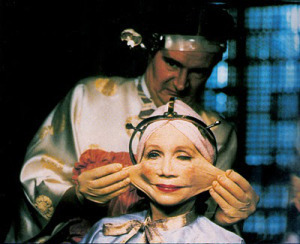
Brazil is without a doubt a work of genius, but it is also told through the eyes of a man whose imagination is far from appealing to all tastes. The history of the making of this movie could easily be made into a film that would, ironically, be much more successful than the movie itself. Hollywood is not geared toward marketing movies as demanding as Brazil, and the epic feud that ensued between filmmaker and film executive following Gilliam’s final cut is still recognized as the biggest studio vs. director imbroglio ever. Universal CEO Sidney Sheinberg insisted on major changes before its release in the US, eventually cutting his own version of the film that was an hour shorter with a predictable Hollywood ending that was completely antithetical to the purpose of the film. Often dubbed as the worst case of film vandalism in history, Sheinberg ordered his version of the film to be shown on television in an attempt to ruin Gilliam’s name. The months-long battle ended in December 1985, when the Los Angeles Film Critics Association saw Gilliam’s version in a series of secret meetings in the back of a gun club and declared the film the year’s Best Picture, as well as hailing Gilliam Best Director and Screenplay writer. Sheinberg and Gilliam hated each other so much that they refused to talk to each other, eventually communicating only through a column in an LA newspaper. Once the film critics had spoken, Gilliam released a full page ad in the paper that said only: “Dear Sid, / When are you going to release my film, Brazil? / Terry Gilliam.” Gilliam’s version was finally allowed in theaters shortly afterward.
It should be said up front that this film deserves more than a single viewing to properly appreciate it. The plot is complex enough without the disorienting lenses through which it is told, and the tale is as layered as a French dessert. Gilliam himself quips that this movie is like an archeological dig, best picked apart slowly and meticulously. In order to alleviate the necessity for multiple viewings (maybe), I’m taking the liberty to point out of few of the layers. Perhaps the first time through can be a little less perplexing if some of this stuff is known beforehand.
Here’s the $64,000 question: What the heck is up with the music? And what does the movie’s title have to do to with anything? The two are entirely intertwined. Gilliam was in Port Talbot, Wales, a steel town where everything is covered with gray, iron ore dust, when inspiration for the title and musical score struck him. He explains the rest in his own words: “Even the beach is completely littered with dust, it’s just black. The sun was setting, and it was quite beautiful. The contrast was extraordinary, I had this image of a guy sitting there on this dingy beach with a portable radio, tuning in these strange Latin escapist songs like ‘Brazil.’ The music transported him somehow and made his world less gray.” Gilliam’s vision spoke so directly to him of the protagonist in the film he was working on, that he could never afterward separate that song’s music from his head as he developed the story. The music, and the title, became inseparable from Sam Lowry’s story.
Let’s move on to setting…when does it take place? Why, everywhere in the 20th Century, of course. Don’t let the typewriters with the computer screens throw you for a loop. No need to be nonplussed by the gasmasks and the bowler hats on the same head. Gilliam is purposefully avoiding being pinned down, and deepening the scope of his cautionary tale by placing robots next to 20s-era desk clerks. Where? Gilliam has said that it takes place along the LA/Belfast border, if that’s any help. It certainly doesn’t take place in Brazil.
What’s with the samurai covered in computer parts, and those freaky baby-faced monsters? The samurai represents the system, of which Sam himself is a part. No surprise, then, when Sam vanquishes it in his dream only to find that it’s himself behind the mask. Samurai…Sam, you are I? The other forces of darkness don’t require too much cogitation. They are both baby and skeletal at the same time…both life and death.
And the ducts! Whatever do they represent? They’re ubiquitous throughout the film. But really, is that any different than real life? Gilliam calls them ‘umbilici’. They are the entrails of society, the guts that make our buildings work, and in turn, our lives. Think about it…does your home not have these wiry entrails? Your plumbing may be smaller and hidden behind the wall, your computer’s cables may disappear through a hole behind your desk, but it’s still there. And that is what Gilliam does with this movie on so many levels…takes the things that are right before us and lets us finally see them in obvious, if not obnoxious ways.
Let’s delve a little deeper, shall we? What does Mrs. Terrain’s unflinching trust and faith in her acid-wielding plastic surgeon teach us about how our society refuses to raise an eyebrow of concern as our leaders take us down ever darker roads, in spite of the pain and agony—and ultimate death—that it causes? Look closely…the answer is in the question.
Look closely at a lot of things in this film…and you’ll probably want to see it a couple more times. What is it that the terrorists are actually blowing up in the opening scene of the movie? TVs? Hmmm. When the captured terrorist is led on a hook through the gauntlet of offices to be processed, notice that the subject of conversation quickly moves from legal counsel to financial advising. Here’s an interesting question…what would happen to the Ministry if terrorist bombings were to suddenly cease? How would that affect revenue, or the Ministry’s purpose in general? What is it that Gilliam seems to have his finger on, here, long before the turn of the century and the challenges it has brought?
We see that the motto of the Ministry is “The Truth Shall Set You Free.” Beautiful! That’s the one thing that the world of this film doesn’t operate on, and the people are subsequently…well, not very free. Are we? But the ministry puts the key right in front of the people’s faces, boldly, proudly, on the grand statue in the lobby, knowing the irony will be lost.
Look closely…the people travel in cages. Look closer…within one cage, all the men are sitting and only a woman is standing without a seat. Closer….she’s pregnant. Closer still…she only has only leg! What else is there to notice on the second or third time through?
Ere I am J.H. It’s the password that allows Sam into the Vice Minister’s office. But look closer. It’s also an anagram of Sam’s late father…Jeremiah.
What does the lady from Central Services on the other end of the phone say to Sam just before she starts repeating her list of menu options? “This has not been a recording!” It’s funny, but why?
Why do we see storm troopers playing volleyball and singing Noel in full uniform? What is the point of Jack Lint bringing his 3 year-old daughter to work with him? (Jack’s a torturer with “Information Retrieval.”) Look close…we can see the little girl’s bouncy ball on the tray of surgical tools in the torture chamber. Why is the secretary who is dictating screams of agony so friendly and accommodating? Why are we met with the image of a man burning alive when Sam and Jill escape the ‘bad guys?’ Gilliam does a fantastic job of divorcing the evil acts of this tale from evil people. There are no evil people. The folks complicit in this topsy-turvy world are us. They are family men…really good people doing really bad work. Even Sam can’t see his complicit role in the travesty that led ultimately to Archibald Buttle’s wrongful death. Did the Nazi soldiers in Germany during WWII see themselves as evil? Were they evil? Is Gilliam’s world really all that topsy-turvy?
Look closely…see the road shouldered by beautiful billboards? See the desolate landscape which lies beyond, hidden by the advertisements? Have you ever driven along a clear-cut highway in California redwood country? Would you know, or was the destruction hidden behind a layer of trees along the roadway?
The Ministry of Information Retrieval has control, the lobby is quiet and austere and Sam doesn’t even have to show his badge at the door. The elevator is waiting for him, as if it knew he were coming. But have a closer look…that same elevator doesn’t meet the floor directly when it arrives at Sam’s stop. Is the Ministry really in control? How might this reflect our own government, today?
Each time Sam rises to a new level in the Ministry, the halls become more and more antiseptic, more clinical. But look closer…see the cardboard wedges sticking through the grout in the white tiles at the Ministry’s highest level? See the drops of red blood on the immaculate floor?
That’s a good start. I wouldn’t want to take all the gems away. Just one last thing: be sure to read as many of the propaganda posters as you can. “Power Today, Progress Tomorrow” is my personal favorite. How many can you spot?
Brazil has more times than not been described as Orwellian, or futuristic. Especially in a post 9-11 world (among several moments, seeing the paper flutter around in the sky after the Ministry headquarters is blown up by terrorists can’t be viewed without one’s eyes bugging out anymore), watching this film strikes me as unsettlingly prescient, and Gilliam has often been told that his film is misunderstood because it came before its time. In a spasmodic fit of irony, though, Gilliam labels that line of thinking the greatest misunderstanding of all, arguing that such a conclusion exactly misses the point. Where Orwell was envisioning a fascist future ruled by order and technology that could someday occur if society followed a certain path, Gilliam—paraphrasing his own words—is satirizing the bureaucratic, largely dysfunctional industrial world that has been driving him batty his whole life.
So, why is this my favorite movie of all time, again? Oh, yeah, back to that. Brazil has earned such a high place of favor with me precisely because it dares to allow general audiences to stare back at it blankly. The fact that it had such a tumultuous history before it was even released only reinforces its nature as a beast to be set aside and held above the rest. This movie, which barely broke even at the box office and is far from a household name, is certainly not for everyone, and that’s exactly why I admire it so; it broke through the very system it criticizes, ultimately, triumphing over Gilliam’s own mammoth samurai. If the everyday people of Gilliam’s dystopia were presented this film, would they laud it, or stare blankly at it? Exactly. Maybe I fancy myself one of the Tuttle’s of that world, darting in and out of an ill land like a songbird in a sewage plant, making it work, allowing it to make sense in small ways, and happily hated by the powers that be because of it. Film critic Richard Corliss said it better than I ever could in his Time Magazine article celebrating Gilliam’s victory over the studio back when the movie was first unleashed: “A terrific movie has escaped the asylum without a lobotomy. The good guys, the few directors itching to make films away from the assembly line, won one for a change.”
In the end, the truth set it free.
Are you ready to enter the funhouse? More importantly, are you prepared not to laugh?


October 16, 2012
Score one for Sauron…
August 15, 2012
Can I Take Credit for Writing Ideas that Come to Me In Dreams?
My three-year-old son awoke from an afternoon nap today shaken by a bad dream. He explained that in the dream he had been playing in the yard and suddenly became aware that the moon was watching him. Woah.
Guillermo de Toro once shared that he drew inspiration from lucid dreams to create some of the creatures that appear in his films, such as the faun in Pan’s Labyrinth.
A fair amount of my own inspiration for writing has come to me straight out of the black depths of my sometimes twisted, sometimes parochial dreamscapes. I can’t tell you how many times I’ve awoken from a dream thinking, “I should write that down before I forget it.” Usually, though, even if I have remembered, the dream scenarios do not hold up under the scrutiny of daylight. It is most often the case that upon further, lucid inspection, the plots and sequences of dreams unravel to the point of uselessness. For example, I remember awakening from a dream about a flood ready to write an epic, modern-day Noah’s Ark blockbuster. By mid morning that day, however, the images that remained in my mind were comical and incomprehensible, at best.
 Occasionally, though, the muse hits me hardest when my lights are already out. Early in college I wrote a novella called Ice Capsule about a National Geographic photographer who uncovers some very unsettling goings-on while visiting a science station in Antarctica. Everything about that story (I have to dust that one off and polish it up one of these days, now that I’m thinking about it!) originated from a very clear dream I had in which I was far below the earth in a deep shaft of ice. In the dream I was looking up toward the the surface at a disk of milky sky, the shaft walls glistening with swirls of blue, watching a piece of paper float down toward me. When it reached me I realized it was a note. I read the note and immediately awoke from the dream and scribbled down what it had said: “She was alive when I took her, and her fear fed me.”
Occasionally, though, the muse hits me hardest when my lights are already out. Early in college I wrote a novella called Ice Capsule about a National Geographic photographer who uncovers some very unsettling goings-on while visiting a science station in Antarctica. Everything about that story (I have to dust that one off and polish it up one of these days, now that I’m thinking about it!) originated from a very clear dream I had in which I was far below the earth in a deep shaft of ice. In the dream I was looking up toward the the surface at a disk of milky sky, the shaft walls glistening with swirls of blue, watching a piece of paper float down toward me. When it reached me I realized it was a note. I read the note and immediately awoke from the dream and scribbled down what it had said: “She was alive when I took her, and her fear fed me.”
A major plot point regarding Embers of Shadow, Book Three of my Sunbird Chronicles, also came to me in a dream. I never could have arrived at something so ingenious when I was awake! Can I really take credit for it, though? Where do these ideas come from? Am I constantly having them (I do think about my writing all the time) and I just happen to have the right satellite dish up to receive good ideas when I’m sleeping? Are our imaginations stronger or weaker when our thoughts are free-floating in the ether of sleep, without conventions of unidirectional time flow and external sensory inputs to anchor our synapses?
I suppose that writing ideas that come to me when I’m asleep are my ideas. Who else would they belong to? But it sure feels like I’m taking them from some…where, and not creating them myself. Does that make any sense?


June 30, 2012
The Green Fairy
I picked up some authentic, European absinthe during my recent trip to Italy. Often referred to as the Green Fairy (and portrayed as an actual fairy in the movie Moulin Rouge, for example) it has been a favorite aperitif of innumerable writers, celebrated and otherwise. I understand Hemingway was fond of the drink, and of the wormwood abstract that gives it its special anise taste and hallucinogenic qualities. With warnings on the bottle such as, “Handle with extreme caution: Do not drink neat,” I was a bit nervous but excited to try it out.
After having had a glass of it now and then, I must say, I don’t know how anyone could have written better while juiced up on this stuff. It’s not quite the same as alcohol (it makes me feel light, not heavy), but it certainly doesn’t lend me any extra additional concentration or creativity. It just kind of makes me distractable and ready for bed.
I don’t know how anyone gets any writing done when they’ve been drinking, much less quality writing. Sorry Capote, Hemingway, Faulkner, King, and the rest of you titans; I’m just not there yet…and I don’t have any plans to move in that direction, either.




